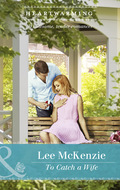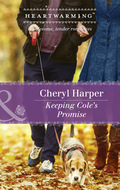Kitap dosya olarak indirilemez ancak uygulamamız üzerinden veya online olarak web sitemizden okunabilir.
Kitabı oku: «Every Time We Say Goodbye»
He had her at “hello again...”
After the prom night accident that had stolen the innocence of his small lakeside hometown, Jack Llewellyn had run. The guilt—especially facing his high school sweetheart, Arlie Gallagher—had been too much. Now he had no choice. He was back in town, and on Arlie’s radar.
Arlie couldn’t believe that after all these years, she still had him under her skin. He was such a changed man...a responsible business owner, a single parent. Would he understand the changes she’d gone through, the secrets she lived with? She was ready to forgive him but was he ready to forgive himself? And did they have to say goodbye this time?
He loved her face.
When he touched her, trailing his forefinger down the sweet line of her cheek, he was surprised at the strength of his emotional response. He wanted to be Rhett Butler or Mr. Darcy or at least one of Louis L’Amour’s Sacketts and take her in his arms. Maybe carry her up a flight of stairs since the Dower House had such a nice wide set. This wasn’t a book and he was definitely no hero, but he wanted to protect her from all harm, to lend peace to her soul tomorrow and tomorrow and tomorrow.
Regret worked its way inexorably into his thoughts. Regret because they didn’t have tomorrows.
But they did have now. He lowered his mouth to hers, keeping the kiss light, almost friendly. But more.
Dear Reader,
I’ve never written with a partner, although I kind of envy those who do. How cool would it be to have someone cover for you on those days when every word you write needs to be unwritten as quickly as possible! However, when I started Every Time We Say Goodbye and I couldn’t seem to name anything, the then-mayor of a town near me, friends on Facebook and Cole Porter took care of that for me. I’d never been in flag corps, cheerleading or marching band, so more friends lent me some of their considerable knowledge. When it came time to choose a title, a genius in Marketing came up with Every Time We Say Goodbye. (I was completely torn between being in love with the title and being jealous because I didn’t think of it—love won. It always does.) My name is the only one on the cover, but a lot of other people helped “put music to my words.”
I hope you love Arlie and Jack’s story—and Miniagua and its residents—as much as I do.
Liz Flaherty

Every Time We Say Goodbye
Liz Flaherty

LIZ FLAHERTY retired from the post office and promised to spend at least fifteen minutes a day on housework. Not wanting to overdo things, she’s since pared that down to ten. She spends nonwriting time sewing, quilting and doing whatever else she wants to. She and Duane, her husband of...oh, quite a while...are the parents of three and grandparents of the Magnificent Seven. They live in the old farmhouse in Indiana they moved to in 1977. They’ve talked about moving, but really...thirty-seven years’ worth of stuff? It’s not happening!
She’d love to hear from you at lizkflaherty@gmail.com.
MILLS & BOON
Before you start reading, why not sign up?
Thank you for downloading this Mills & Boon book. If you want to hear about exclusive discounts, special offers and competitions, sign up to our email newsletter today!
Or simply visit
Mills & Boon emails are completely free to receive and you can unsubscribe at any time via the link in any email we send you.
Many thanks go to Jim Walker, who named Lake Miniagua, to the Facebook friends who named Wally and Caruso, and to songwriter Cole Porter, whose song titles made Miniagua such a fun place to write about. A special thanks to Joey Kubesch, who helped put the right names with the right businesses.
A few miles from our house, sitting smack in the middle of the cornfields, is a school campus containing grades K–12 plus preschool. It’s where my kids, some of my grandkids, and I all graduated from. It’s where my daughter and son-in-law teach. It is one of the safest, best, most loving places I know. It’s because of what I learned there that I grew up to write books—the best job in the world.
So it is to the past and present staff of North Miami Community Schools that this book, with my heartfelt gratitude, is dedicated. Go Warriors!
Contents
Cover
Back Cover Text
Introduction
Dear Reader
Title Page
About the Author
Dedication
CHAPTER ONE
CHAPTER TWO
CHAPTER THREE
CHAPTER FOUR
CHAPTER FIVE
CHAPTER SIX
CHAPTER SEVEN
CHAPTER EIGHT
CHAPTER NINE
CHAPTER TEN
CHAPTER ELEVEN
CHAPTER TWELVE
CHAPTER THIRTEEN
CHAPTER FOURTEEN
CHAPTER FIFTEEN
CHAPTER SIXTEEN
CHAPTER SEVENTEEN
CHAPTER EIGHTEEN
CHAPTER NINETEEN
CHAPTER TWENTY
CHAPTER TWENTY-ONE
CHAPTER TWENTY-TWO
CHAPTER TWENTY-THREE
Extract
Copyright
CHAPTER ONE
IT HAD BEEN sixteen years since he’d seen Arlie Gallagher. And three months and four days. Not that he was counting.
But he knew, as he stepped out of the rental SUV he’d parked in front of the Come On In hardware store, that the woman standing in front of the tearoom across the street was indeed Arlie. She was dressed in turquoise scrubs and wearing sunglasses that covered half her small, heart-shaped face, but he recognized her compact build, riot of red curls and hey-world-it’s-me movements as though he’d seen her only yesterday. He thought the woman with her, whose dark hair was a perfect foil for the rich copper of Arlie’s, was her stepsister, Holly. He couldn’t look away long enough to be sure.
The coward in him urged him to hustle into the hardware before Arlie looked across Miniagua’s gravelly Main Street and saw him. But that would have meant looking away.
Which he couldn’t have done under penalty of, well, death, he guessed, because that was something he knew. He’d looked away from her once, actually walked away from her, and dying would have been a whole lot easier.
He closed the car door firmly. Sounds carried on the breeze from the lake, and Arlie looked up, meeting his eyes. She raised her arm, then dropped it with the wave unfinished. Her smile, that wide, generous expression that grew like one of those sped-up videos of a rose blooming, started but faded before the rose made it out of bud stage.
He still couldn’t look away. He couldn’t breathe, either, so he just drank in the sight of her. This must be what a person would feel like if he came in from the desert after not having anything to drink for, say, sixteen years. That first glass of water would be wonderful. It would be life-affirming and fresh and would end way too soon.
The brunette, whose brisk, loose walk didn’t give away the fact that her left foot was prosthetic, nodded in his direction. She didn’t smile, though, and he didn’t either, just lifted his chin and let it drop. When the women went into the Seven Pillars Tearoom, he was finally able to turn and walk toward the hardware store’s front door. Mostly without seeing where he was going.
He and his half brother, Tucker, had been raised on the estate that filled a chunk of the frontage property on the south end of Lake Miniagua’s six hundred acres, but Jack Llewellyn seldom came back. When he did, he paid his stiff respects to his grandmother and stood silent and stoic sentinel for an hour in the cemetery beside the Miniagua Community Church. He’d learned to move quickly on these visits, making it on the afternoon flight home so that by midnight, he’d be relaxing in front of the TV with a beer. He wouldn’t have seen anyone but Margaret Llewellyn and her household staff.
This time, he didn’t get off that easily. Not only would he not get back to Vermont today, he wouldn’t make it tomorrow, either. From the looks of his grandmother’s will and her estate, he’d be in Indiana for a good long time settling the estate.
That meant he’d have to see all those people whose lives had been irrevocably changed the night his father drove drunk and failed to stay to the outside on one of the tight curves on Country Club Road. Jack might have to try to explain things for which he had no justification. Things like why he’d left.
He’d known he would see Arlie, whose heart he had broken, but he had wanted—no, needed—time to prepare himself. Sometimes if he was ready, if he tightened his jaw and focused on other matters—any other matters—he could think about her with barely a twinge of the hurt he’d caused them both. Sometimes.
But that was before he saw her across the street. More than a twinge, the pain that ripped sharp and unexpected down the center of him nearly brought him to his knees.
The bell over the hardware store’s door rang when he stepped inside. Sam Phillipy’s voice, the deepest, truest bass the high school choir had ever heard, came from the back of the hardware store. “Can I help you?”
Jack had to catch his breath yet again. Why hadn’t he thought about it longer before coming into the store? Before coming down to Miniagua’s two-block business district at all? He should have known Sam would be here, should have been ready to face the only man who’d ever been as close to him as his brother. There had never been a better friend than Sam Phillipy. Or a worse one than Jack Llewellyn.
“I’ll need a remodeling crew. I figured this would be a good place to start looking.” Jack sauntered back, striving for casual. Hard to do on legs that still felt shaky.
The old wooden floors echoed with the same hollow sound as they had in high school days. He could almost hear the dribbling of basketballs on the boards. It was an indicator of just how small Miniagua was, he reflected, that teenage boys had hung out in the hardware store.
Sam met him in the middle of the store beside the endcap of paint colors. They sized each other up much as they had more than twenty years ago. Sam looked good even with a patch over his left eye. Lasting damage from the prom-night wreck. Jack had to stop himself from flinching. “Sam.”
“Jack.” Sam nodded, not offering his hand. “My condolences on your family’s loss.” If there was a sneer in his voice, Jack couldn’t hear it, but there was no warmth in his old friend’s expression, either. Nor even a hint of welcome.
“Thank you.” Jack shuffled his feet on the worn floor, feeling as he had that first day he’d come to school at Lake Miniagua, the only eighth grader in high-dollar khakis and Italian loafers. Sam had greeted him then, walking through a gaggle of lakers with an outstretched hand and an offer to share his locker. The move had been both curiously adult and a harbinger of what was to come—they’d shared a locker until the day they graduated.
“When is your grandmother’s funeral?” Sam poured coffee for them both, handed Jack a cup and lifted the pot in invitation to the pair of Amish farmers who were examining the harness that hung across the back wall. They came forward for refills, then went back to the wall.
Jack wasn’t sure why Sam had given him the drink but was grateful nonetheless. Maybe the motivation had been pity because Jack was once again wearing designer clothing in a Levi’s-and-T-shirt kind of place. It had been bad enough being the overdressed new kid at thirteen—it was worse at thirty-four. But he’d gone from a business meeting straight to the airport. His assistant had met him there with a suitcase. “Tomorrow at two.”
“Will you be staying on? How about Tuck?”
“Looks like we both will.” Jack drank deeply. Sam definitely knew his way around a coffeepot. “At least until we can sell the plant and figure out what to do with the Hall.” He smiled without humor. “Know anyone who wants a ten-thousand-square-foot albatross?”
Sam shook his head. “So, you’re selling the plant?” His face was tight, his knuckles white on the curve of his cup.
Jack nodded, then remembered that Sam’s father, Paul, was the production supervisor and had been since the boys had been kids. “Your father’s job will be safe, unless he’s ready to retire. There’s no need to worry about that.”
“I’m not worried. He won’t be, either, I imagine, but those other fifty-some people who work there—they might have some concern.” Sam’s voice was mild, but the look in his good eye was anything but.
Irritation crawled along Jack’s hairline, and he tightened his jaw. He’d bought and sold a handful of businesses since he’d graduated from Notre Dame. He’d made himself a success by flipping companies the way those guys on television flipped houses, and he hadn’t done it by causing irreparable harm to labor. Didn’t Sam know that?
No, of course he didn’t. Why would he?
“We’ll do what we can to protect all the jobs.”
“Well.” Sam nodded abruptly. “That’s good. Did you say you were looking for a remodeling crew?”
“A couple of them, probably. If we are going to sell the alba...the house, it needs to become more like a home and less like a museum.”
“Are you and Tucker living in it?”
“Tuck is. I’m in the Dower House.” He looked at his watch. Not that he cared what time it was, but it was hard maintaining eye contact with Sam, as hard as it had been seeing the redhead across the street. “I’ll check back with you, all right?” He set down his cup and headed toward the front door of the store, needing air, needing something to ease the grief of being back in this place he’d loved so much and being completely alone.
Sam’s voice followed him. “I’ll check around.” He cleared his throat. “I’ll see you at the funeral.”
Jack stopped, turning around to meet Sam’s gaze. “That’s very kind of you.” He knew the words were stilted, but he meant them.
“Your grandmother was a customer. Not that she ever came in the store, but she’d call and tell me what she wanted and I’d take it out there. And she was your grandmother. We were best friends in high school—all the way through. You walked away and the truth is I don’t like you very much right now, but on some level we’re still best friends.”
Jack smiled, but the expression felt cold on his face. He doubted if it looked any warmer than it felt. “Really.”
“Yup.” Sam sketched him a wave. “When you drive down Country Club Road, those little crosses that are all rough and the paint’s worn off? They’re the only sign that the accident ever happened. The road’s been repaved, even widened a little. They couldn’t do anything to straighten out the curves, but it’s a lot safer than it was then. Other than those of us who were in the wreck and our families, people have forgotten. The scars have healed. I don’t know why you saw fit to leave the way you did. I may never know why. But you’re back now, at least for a while, and it’s time for the exile to end. It’s been long enough.”
“Long enough?” Jack kept his voice mild, maintained the smile, but everything inside him tightened. “For the Gallaghers and the Benteens? The Worths and Linda Saylors’s parents? For you, Sam?”
Sam hesitated, lifting his free hand to straighten the patch that suited his face so well it was as though it had always been there. “Maybe not. I don’t know.” He sighed. “The accident wasn’t your fault. No one blames you for it.”
“I know.” Not that he believed it for a New York minute, but maybe if he said it often enough, he would. Maybe.
* * *
“SERIOUSLY. RENT-A-WIFE IS cleaning the Dower House and I drew the short straw? No one will be there while I’m working, right?” Arlie Gallagher filled her plate with a little more spaghetti than was probably good for her, but her stepmother was the best cook on the lake. “You told them that everyone should be out of the house so I can get the job done quickly?”
“Yes, I told them that.” Holly, her six-months-younger stepsister, followed her, filling her own plate as full as Arlie’s.
Gianna Gallagher topped off their wineglasses and waited for the daughters she’d raised more alone than not to join her at the table. “I’m glad you girls are here.” She swirled the liquid in her glass and took a drink. “I don’t get lonely much—there’s no time—but mealtime’s when I miss your dad the most.”
“We should come for dinner more often.” Arlie covered her stepmother’s hand with her own and smiled into her eyes. “It would be a struggle, but I could eat your cooking occasionally as opposed to standing over the kitchen sink scarfing a Hot Pocket. Goodness knows, Holly could use some more pasta, too.”
“No, I couldn’t.” Holly shook her head. “If I gain more than ten pounds, my foot doesn’t fit right and I have to get a new socket.” She rapped the side of her prosthetic ankle, a result of the accident that had claimed her stepfather’s life.
Gianna squeezed Arlie’s fingers. “I wanted to talk to you both before you started hearing things. Lakers may blame the summer people for starting rumors, but the truth is that gossip travels even faster in the wintertime when people are bored.”
“What is it, Mama?” Holly spun her pasta expertly onto her fork.
“The Llewellyns.”
Arlie laid down her fork again, her appetite gone. “We’re cleaning the Dower House as requested, Gianna. We already know Jack’s coming back for a while. He won’t stay—he never stays.” The words made her stomach twist, the way it had when she’d seen him on the street today.
She leaned back in Gianna’s comfortable dining room chair and sipped wine, enjoying the immediate comfort of it. Sycamore Hill’s red was extra good this year. Not that she could tell the difference, but Chris Granger’s family owned the local winery and he said it was.
Gianna hesitated. “Apparently the estate is very complicated. I don’t pretend to know what all’s involved—the beauty-shop grapevine’s intel wasn’t that in-depth—and both boys will be coming back here to stay for a time.” Gianna’s eyes softened on Arlie. “Will you be okay with it?”
After the accident, there had been so much pain between them they couldn’t seem to get through it. When he left for college, he never came back. It still hurt to think about it, though not as badly as it had then. Nothing hurt as much as it had then, but seeing him across the street today had opened the old wounds.
If Arlie gave the word, her stepmother was completely capable of telling Jack Llewellyn the streets of Miniagua weren’t big enough for him and her daughter both and he needed to find his way back out of town.
She sipped her wine, enjoyed its warmth, then drained her glass. “It’s not as though I’ve spent the last sixteen years in mourning. I’ve lived half my life since then. I have a career, my own house, and Chris is a sort-of boyfriend. I can deal with seeing Jack.”
It sounded good, she thought, but her stepmother didn’t look entirely convinced.
Gianna glanced at her watch, then poured the last of the red into their glasses. “We’ve buried our dead and gone on with our lives. Jack and Tucker are here to do the same thing. Miniagua is home to them just like it is to the rest of us. It’s time for peace in all our souls.” She firmed her voice and met Arlie’s eyes, her dark gaze compassionate. “If you think you can welcome them back, then I know I can.”
Holly nodded. “Me, too.”
Arlie didn’t think she was ready for that. Cleaning the Dower House was one thing. Seeing Jack from across the street without losing her lunch had been entirely doable. Getting friendly with the Llewellyns was something else entirely.
“I’ll try.” Arlie stared back into the eyes that still held hers. “I promise I’ll try.”
Once dinner was over and they were standing in the driveway of Christensen’s Cove, Gianna’s house, saying good-night, Holly offered Arlie a ride. She shook her head. “I need some air. And maybe to think some.”
“Don’t overthink it, sis.” Holly hugged her hard.
Arlie nodded. “See you in the morning.”
The evening was warm for mid-October. A full moon danced on the water, and Arlie could hear people chatting on their porches and docks, hanging on to all the comfortable outdoors time they could. Sometimes during the day, Lake Miniagua looked big, but in the evening it seemed to shrink, its streets becoming the bumpy and narrow throughways they actually were. People rode by on bicycles, calling out greetings as they passed. Golf carts whizzed along in near silence. Teenagers walked close together in couples and groups, both sibilance and new huskiness in their hushed laughter. The playground above the beach was deserted, although Arlie thought if she listened hard, she could hear echoes of the past ringing through it. But maybe that was just the rustle of dry leaves as they scuttled across the ground in the breeze.
Arlie’s father had built the house she lived in, though he’d sold it when he and Gianna married. The red Cape Cod sat at the end of a narrow inlet that had been dubbed Gallagher’s Foot. When Arlie bought the house three years ago, she painted Gallagher’s Big Toe on the mailbox. The name had shrunk to “the Toe” and stuck.
When she’d opened the garage door the first time after she took possession of the house, she found a scrap of a kitten curled up in an old Easter basket. Jesse Worth, a veterinarian whose office was halfway between Miniagua and Sawyer, had said it wasn’t old enough to leave its mother. He’d given Arlie enough eyedroppers and a recipe for formula to keep it alive.
The kitten, whose meow was so loud Gianna had christened her Caruso despite her gender, now weighed fifteen pounds and owned Arlie, body and soul. Caruso was not amused that her housemate was so late coming home, but a couple of treats accompanied by an intense chin-scratch and belly-rub helped matters considerably.
After showering, putting on a faded Ball State University sweatshirt and black flannel pajama pants, and wrapping her tumble of red hair in a towel, Arlie lifted a scrapbook from one of the bookshelves that flanked the gas fireplace. She clicked the fireplace’s remote, then sat in the recliner, drawing a quilt over her legs—warmth had receded fast once darkness fell. Caruso settled in beside her, her purr a companionable roar in the cozy room.
“What do you think, Caruso?” The book of memories was her first effort, put together when she was trying to get her mind and hands to work together after the accident. Holly had replaced cheering and dancing with writing after losing her leg in the accident. Arlie had learned to scrapbook in lieu of singing and playing the piano and clarinet when neither her throat nor her hands returned to what they had been previously.
She’d been seventeen when she put together the first album, the one with covers in their school colors, so she shouldn’t have been surprised that the first picture was of her and Jack. She shouldn’t have been, but she was. Every single time.
She jumped when the doorbell rang. It wasn’t that late—just after nine—but visitors in Miniagua usually phoned or texted first and came by before dark unless it was summertime, when everyone was sitting outside anyway.
The cat accompanied her to the door, her ringed tail at stiff attention, and Arlie bent to pet her. “You’re such a good girl. It’s probably some of the senior class selling magazine subscriptions—that and car washes are the only way they get the prom paid for. Did you want to go with me if they ask me to chaperone? You saw that picture when Jack and I went. You and I would be at least that cute.”
Caruso leaned against her legs when they reached the entryway. Arlie turned on the porch light, the wattage guaranteed to blind whomever was on the porch, and pulled open the door.
Somehow she wasn’t surprised when she saw Jack standing on the other side of the threshold.
His hair, curly and unmanageable when he was a boy, was straight now, still blond but streaked with brown. She’d always accused him of wearing tinted contacts because his eyes were such a bright blue. They were still spectacular, still fringed by thick lashes, but the blue had darkened and he wore glasses with wire frames. His face had been a boy’s when she saw him last, with all the softness of adolescence in it, but now his cheekbones were sharper, his jaw more square and covered with a well-trimmed beard. His build was lean, still broad shouldered and flat stomached, but more spare somehow than sixteen years before.
He wore jeans and a leather jacket that hung open over a faded blue cotton sweater. An earring glinted in his left ear, and she wondered for a suspended moment if it was the same one with his birthstone that she’d bought him for his September birthday. She’d given it to him early, before he left for college, and then she’d never seen him again.
“Jack.”
“Arlie.” He nodded, his gaze not leaving hers. “I just wanted to tell you, you don’t have to clean the Dower House. I can’t believe the lawyer’s rep asked you. Well, I can, but I’m sorry she did.” His smile was so slight it almost wasn’t there. “I also can’t believe that’s the best excuse I could come up with for coming over here this late.”
She didn’t smile back. “She didn’t ask me. She asked Rent-A-Wife, which is Gianna’s business. I just help out once in a while. Unless you no longer need our services, we’ll do the job.” Angry for a reason she couldn’t name, not to mention insulted, she started to push the door shut.
“Wait.” He stopped the door with his hand around its edge. “May I come in?” He hesitated. “Please.”
It’s time for peace in all our souls. Gianna’s voice echoed gently in Arlie’s mind. She took a deep breath and stepped back, Caruso winding around her ankles. “Sure. Go ahead and have a seat. Would you like something to drink?” She made the offer grudgingly, but she wasn’t Gianna Gallagher’s daughter for nothing.
“Do you have coffee? I know it’s late for that, but it’s tasted good all day.”
Friendly. That was how he was going to play it. Let’s just pretend the past sixteen years didn’t happen. Okay, she could do that. Sure she could. “There’s an organic market on the lake. I think everyone buys coffee there now.” She went to make a fresh pot, breathing deep when she opened the coffee canister. The scent was definitely therapeutic.
He leaned on the counter between the kitchen and the dining area. “I had supper at the Anything Goes Grill on the north end. I guess it’s new? It was good.”
“It is good. It’s nicer than the Silver Moon, although the food’s about equal on the quality scale, and it has booze.” Chris’s family had opened Anything Goes within the past year. He didn’t work in the restaurant, but he spent a lot of time there. She wondered if he’d been there tonight.
Jack looked around. “Your house looks pretty. Was it nice to come back to where you lived as a little kid?”
“It was after a while. At first, until we painted everything and put down the hardwood floors, I just kept thinking of it as the house where we lived when my mother left.” She lifted cups from the cupboard.
“Do you hear from her? Your mother?”
“No. Well, yes. At Christmastime. Usually. She’s forgotten a few.”
Arlie handed him his coffee, then filled a plate with cookies and led the way back to the living room, carrying the plate and her own mug. The cat glared at her from the seat of the recliner. “I didn’t introduce Caruso, did I? She’s my roommate.”
“What a beauty she is.” Jack had always loved cats. He set his cup on the table at the end of the couch and lifted Caruso into his arms. She leaned into him, purring politely and eyeing him adoringly with bright green eyes. “I thought Russian Blues didn’t like strangers.”
“She does. Especially males.” Although the cat wasn’t crazy about Chris. She always climbed onto her perch on the front windowsill and lay with her back to the room when he was there. Arlie wasn’t so sure Caruso’s instant adoration of Jack qualified her as a good judge of character.
When they were seated, Jack sipped from his coffee, closing his eyes for a moment in appreciation. “Rent-A-Wife?” He raised an eyebrow. “Weren’t you wearing scrubs today?”
“I’m a nurse at the hospital in Sawyer. I just help at Rent-A-Wife when Gianna needs me.” He was trying to make conversation, and she had to give him points for the effort, but she didn’t know what to say to him.
He picked up the scrapbook that lay on the couch beside him. “I remember this. You made it that last summer, didn’t you?”
She nodded, and quiet settled between them as he leafed through the heavy pages. Partway into the book, he began to ask questions. She progressed from two-word answers—“Sophomore year”—to short explanations—“No, I was grounded”—to unwilling laughter when he buried his head in his hands after seeing a picture of himself in drag during the high school production of Hairspray. After that, they laughed more, argued over things that didn’t matter and played the “do you remember?” game. At some point, it was almost as though he’d never left Miniagua. Never left her.
They were on their second cups of coffee and yet another plate of cookies when Jack reached the end of the album. He fell silent, looking at the five-by-seven studio shot of the ten of them who’d driven together to the dance. The last dance.
“Do you ever talk about it?”
She looked at where the book lay open across his lap, then up at the clench of his jaw, the set of his mouth and the tragic look in the eyes behind his glasses. She set down her cup and clasped her hands between her knees. She kept her voice quiet and steady, trying to downplay the huskiness of it. “We mention it sometimes. We say ‘the accident’ because you can’t just pretend away something that changed your life to that extent. We talk about Daddy—he was Superdad, after all.” She smiled, feeling her cheeks wobble with the effort. “But we don’t play the ‘if only’ game—at least not out loud, because it would drive us crazy.”
Ücretsiz ön izlemeyi tamamladınız.








